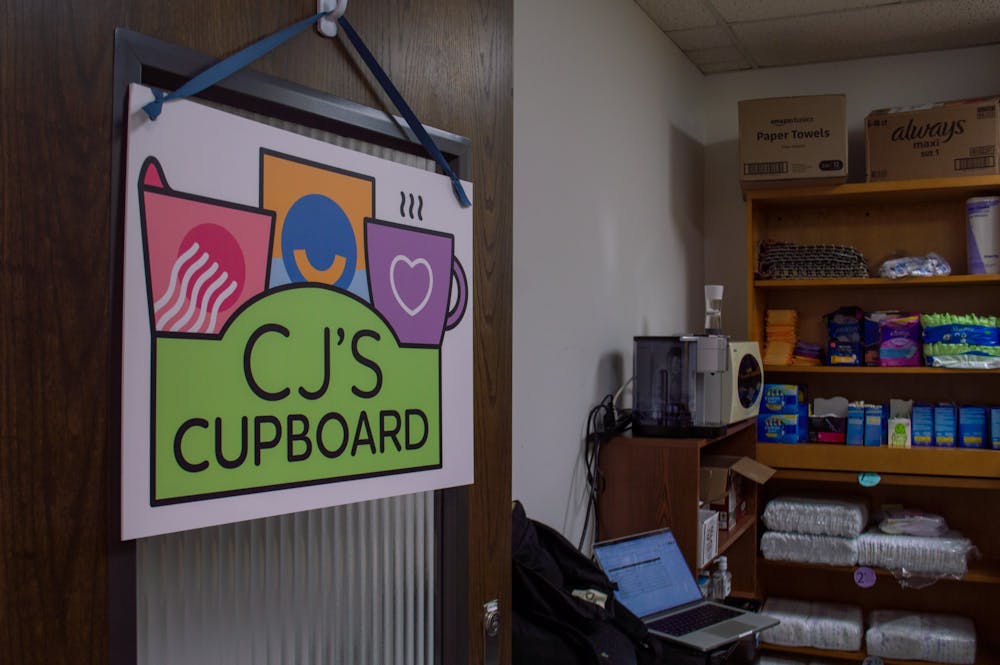As the issue of food insecurity continues to impact campus, the UNC Gillings School of Global Public Health has implemented a resource that aims to help — CJ’s Cupboard.
CJ’s Cupboard is a food pantry welcome to all Gillings students, located at 2220 McGavran-Greenberg Hall. Amanda Holliday, associate professor of nutrition and manager of CJ’s Cupboard, said she helped start CJ’s after a survey revealed last year that around 9 percent of Gillings students were food insecure.
The name “CJ’s Cupboard” comes from a combination of the first two letters of Holliday’s grandmothers, both of whom inspired her to pursue nutrition and cooking, Holliday said.
CJ’s Cupboard is overseen by Holliday and Nutrition Coalition, a student organization run by Elizabeth Lo and Heba Akhtar that conducts multiple food-related projects and fundraisers on campus.
Lo said that, although the University does value the health of students, the rigorous lifestyle of a UNC student can make prioritizing nutrition difficult.
Jessica Soldavini, research specialist for No Kid Hungry NC and the Carolina Hunger Initiative, said food insecurity among college students is an issue that many people have historically overlooked.
The U.S. Department of Agriculture classifies food security levels with four different categories; high, marginal, low and very low. High food security indicates no food accessibility problems, while very low indicates multiple reports of reduced food intake and disrupted eating patterns.
Soldavini said that, before COVID-19, numbers showed that around 30 percent of students at UNC were food insecure, and an additional 21 percent were marginally food secure.
“From the outside, college campuses appear to be latent with grab-and-go options, dining halls, fast casual restaurants, and vending machines,” Maggie Simonds, a student who was involved in the inception of the pantry, said in a statement. “But behind the scenes approximately one in six students are experiencing some degree of food insecurity.”




